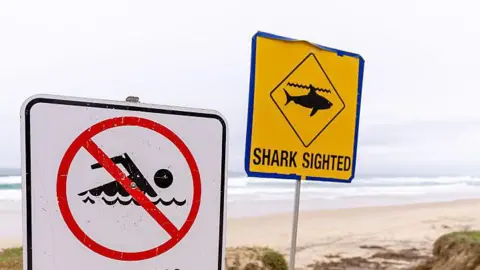The shark involved was estimated to be around six feet long, though its species remains unidentified. The Department of Environment and Coastal Resources emphasized that the tourist had made an effort to engage with the shark before being bitten. The beach was temporarily closed for safety; however, it reopened two days later after the shark was located in deeper waters.
This incident raises concerns, as shark bites, though infrequent, can result in significant injuries. Experts note that such situations usually arise when sharks mistake humans for prey. The International Shark Attack File registered various shark bite occurrences globally, and the majority were classified as provoked due to human interaction.
Interestingly, the same day, two Americans reported shark injuries in the Bahamas, causing even more alarm among marine safety advocates. Though these incidents are rare, they underscore the inherent risks associated with interacting with wildlife, promoting a cautious approach for tourists eager to capture the beauty of the ocean’s inhabitants.
This incident raises concerns, as shark bites, though infrequent, can result in significant injuries. Experts note that such situations usually arise when sharks mistake humans for prey. The International Shark Attack File registered various shark bite occurrences globally, and the majority were classified as provoked due to human interaction.
Interestingly, the same day, two Americans reported shark injuries in the Bahamas, causing even more alarm among marine safety advocates. Though these incidents are rare, they underscore the inherent risks associated with interacting with wildlife, promoting a cautious approach for tourists eager to capture the beauty of the ocean’s inhabitants.



















